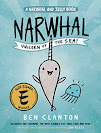International Whale Shark Day was established to raise awareness around the importance of whale sharks to marine ecosystems and their dwindling population numbers, and to encourage efforts to conserve the species.
Having no real natural predators in the wild, whale sharks are under threat solely due to human activities.
Between the months of March and July (sometimes longer), it is estimated that 350-500 individual whale sharks make their way to the Ningaloo region of Western Australia, primarily to exploit the abundance of food in the area.
The Ningaloo Reef tourism industry is the leader in sustainable whale shark tourism, and this aggregation of Whale Sharks is the most researched population in the world. This website has a summary of important facts you need to know about whale sharks, besides being the largest fish in the sea, even bigger than Great White sharks. Did you know they have no teeth?
While these sharks will feature in books about fish and sharks, there are some books where they shine on their own.
• Whale Sharks in Action by Tunby Benjamin
• Save the ...Whale Sharks by Anita Sanchez
• Whale Shark by Camilla de la Bedoyere
• The Whale Shark Song by Sadie James
• Wandering Whale Sharks by Susumu Shingu
• The Whale Sharks of Ningaloo is an activity book for kids to help them learn all about Western Australia’s marine emblem.
And two new ones coming soon
• Walter the Whale Shark by Katrine Crow and Hazel Quintanilla
• Whale Sharks by Jackie Golusky
This short video gives just the right amount of information.








































